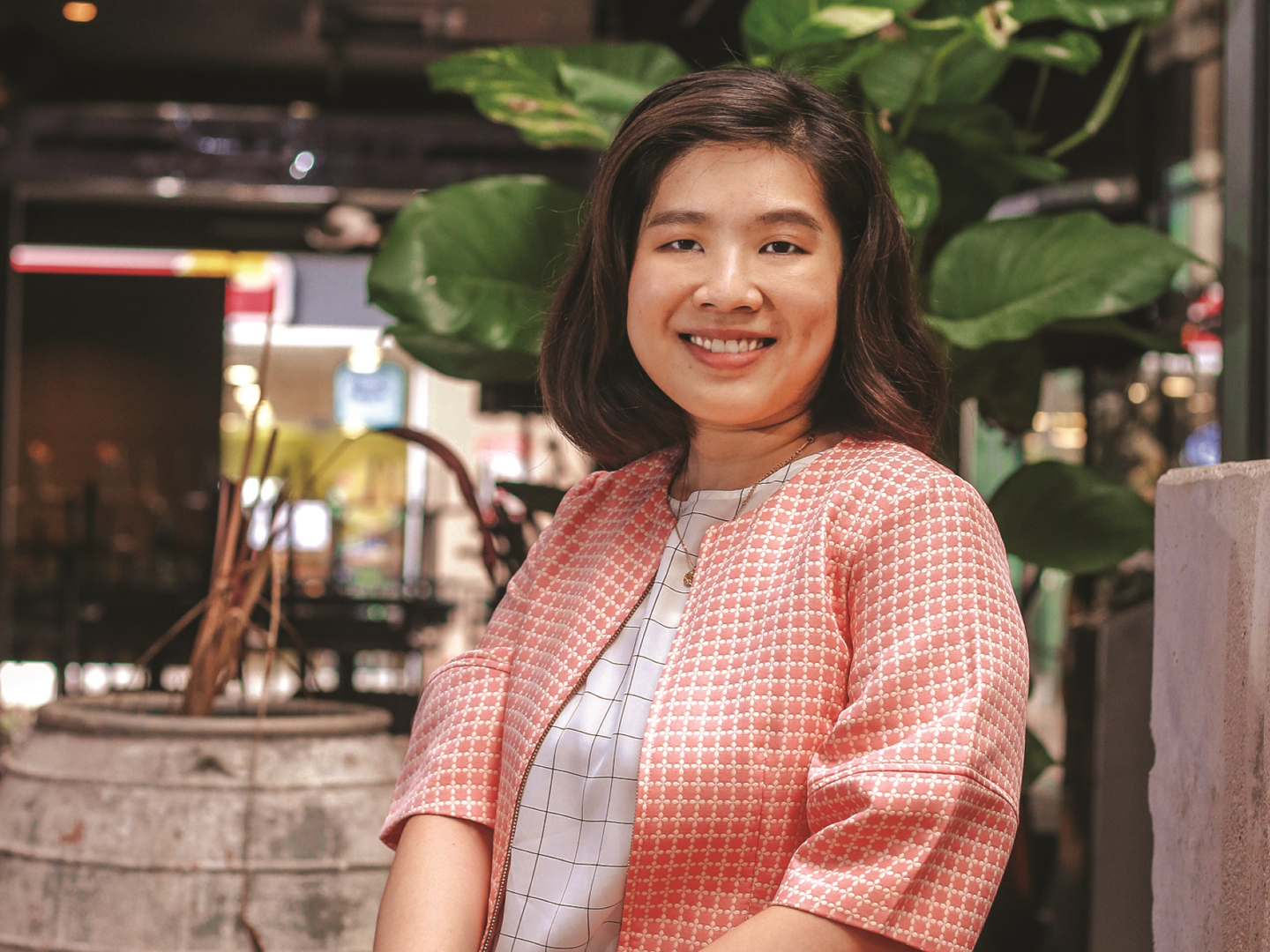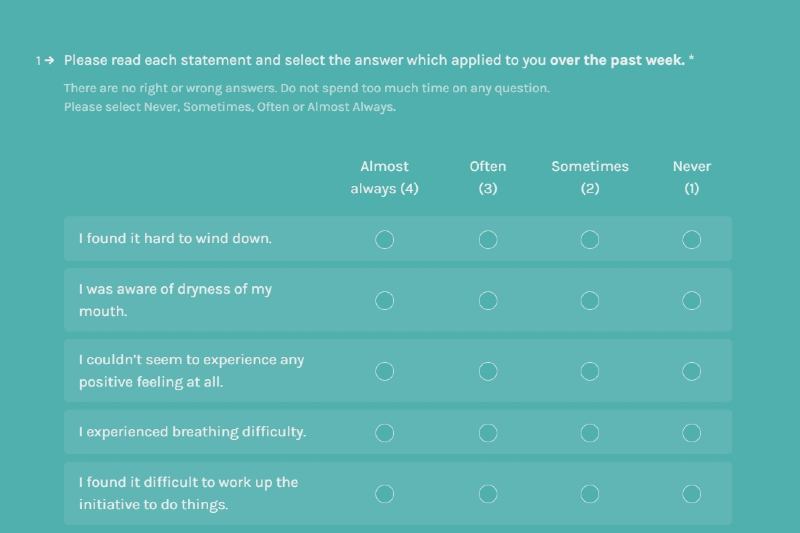
Tho witnessed first-hand the benefits of seeking professional help and the stark difference it made to her state of mind and emotional well-being (Photo: Zahid Izzani/The Edge)
A study by Pennsylvania State University researchers published in the American Psychologist journal shows that Americans between the ages of 45 and 64 experience more stress today than people their age did in the 1990s.
The data collected indicates that day-to-day stresses had increased while the overall sense of well-being had decreased among the different groups of participants interviewed in 1995 and 2012. Experts believe that changes in the pervasiveness of technology, economic hardship and family and relationship dynamics were some of the factors influencing this trend.
However, the younger generation who voiced out concerns about poor mental health often struggled to be taken seriously by their elders. It took living under the pressure cooker that is Covid-19 and its cascading effects for mental health to stop being taboo in open conversation. Even then, those interested in seeking help struggled to find accessible and affordable mental healthcare, with the majority of them priced out of private options and long wait lists at public centres.
Tho Leng-Lei had some personal experience with these issues. When she found herself in a dark place, it was her employers who suggested therapy and supported her throughout the process, even allowing her to claim the fees as part of her employee benefits. She witnessed first-hand the benefits of seeking professional help and the stark difference it made to her state of mind and emotional well-being. Inspired by the outcome, she wanted to make sure as many Malaysians as possible have the same opportunity she had.
Aloe Mind was founded in May as an online mental health portal offering affordable access to clinical psychologists and counsellors.
“If you look at the market, therapy is expensive, especially if you need it urgently and have to go private,” says Tho. “Good mental health is actually out of reach for many people. Pre-pandemic statistics show that one in three Malaysians had suffered from some form of mental health issue at some point. Mind you, this was in 2019. And with the recent lockdowns, the figures have risen sharply, with reports of increased calls for help.
"I wanted Aloe Mind to meet this need. I know how hard it is to take that first step and reach out, especially for those who don’t have the support I did. One of our core missions is to make that process, that first step, as easy as possible.”
Named after the healing properties of aloe vera, the mental health portal operates exclusively online to keep overheads low and transfers those savings to clients. The fees are RM180 for the first session, RM150 for subsequent sessions, and RM300 for couple therapy. Aloe Mind is currently open only to Malaysians above the age of 18.
“Being online expands our reach considerably, especially to those in Sabah, Sarawak and rural areas, as these facilities are often concentrated in urban areas,” says the founder. “The process is quite straightforward. First, you take our free mental health test. It takes just a couple of minutes and is not diagnostic — it just provides a snapshot of your mental health, with scores for depression, anxiety and stress.
“After that, most people will go on to book a mental health screening, a 45-minute session in which they examine the severity of their scores and receive recommendations on how to move forward. These include self-care, therapy or coping mechanisms. It’s a short one-off session that eases first-timers into mental healthcare. If you’re comfortable, you can then sign up for therapy. Therapy can require commitment and may be a long-term process to see real progress and results.”
aloe_mind_quiz.jpg

In these sessions with Aloe Mind’s clinical psychologists or counsellors, clients will be guided through a deep dive into their concerns and a treatment plan, with further professional diagnoses or referrals if needed. As therapy is a deeply personal process and relies on a connection between the client and the therapist, finding the right fit may take some time.
Aloe Mind lists as many details about its therapists as possible, from qualifications to areas of speciality, language and if they are queer affirmative. The booking process is seamless — a confirmation email sent after payment includes a link for the appointment, to be clicked on at the allotted time.
Flexibility is a key advantage of its operations, designed to ensure clients feel safe and comfortable throughout. While all sessions take place online, clients can choose if they would like this to happen in the form of a video call, an audio-only call (video switched off) or even take place entirely via the chat box function for those who are anxious about verbal interactions or do not have sufficient privacy to open up audibly.
In the three months since its launch, thousands have taken the free mental health test and many have opted to pursue therapy through the platform. The pandemic has naturally created a most unusual set of circumstances, with loneliness and depression high on the list of issues faced. It has also exacerbated existing common troubles such as job-related stress, spanning difficulty in finding work to struggles coping with pressure or expectations.
A common misconception is that therapy is for those grappling with trauma or stress. However, it can also address seemingly benign issues most people would not ordinarily think of seeking help for. Think chronic procrastination, low motivation or self-sabotaging behaviours such as revenge bedtime procrastination, in which people try to reclaim hours lost to a busy daytime schedule by indulging in leisure activities late into the night at the expense of sleep.
“Therapy is not only about healing but can also be about enhancing or optimising,” says Tho, who quit her corporate job to run Aloe Mind full-time. “It can help you become a better version of yourself or achieve your goals. Also, it does not have to be a long, ongoing process. Some people seek help for temporary circumstances or when they need objective opinions on big decisions, such as getting married or switching jobs or industries. A counsellor or therapist will walk you through your fears and help you explore whether these are valid. These could be addressed in just a couple of sessions.”
The high take-up rate suggests that there is indeed a demand for affordable and accessible mental healthcare, and the enterprising founder has plans in the pipeline to expand the platform’s offerings to cater for the myriad needs of Malaysians.
“We are looking to introduce more features, such as psychological assessments for specific disorders and digital tools to make therapy easier for both therapists and clients,” she says. “We are also thinking of approaching companies to work with us, the same way some workplaces subsidise gym memberships. Work is a crucial influence on mental well-being and we can tailor our services to suit their needs.
“These conversations are so important, and I’m glad to see more Malaysians speaking out about them in person or on social media. It removes the taboo around the topic, destigmatises mental illnesses and normalises seeking help when necessary. The rate of awareness this past year has been exponential, which bodes well for those who have, until now, suffered in silence.”
Therapy has not only improved Tho’s life, but also changed its trajectory entirely with the setting up of Aloe Mind.
“Asians in particular tend to not talk about their feelings,” she says. “After receiving therapy, I’m better able to label emotions, recognise my needs and use the coping mechanisms I’ve learnt to manage stress. I definitely feel a lot happier, and am more fulfilled and content with my life. And I hope Aloe Mind does the same for others.”
For more information on Aloe Mind and its services, see here. For someone to speak to in an emergency, please reach out to Befrienders KL at (03) 7627 2929 or Talian Kasih at 15999.
This article first appeared on Jul 12, 2021 in The Edge Malaysia.


